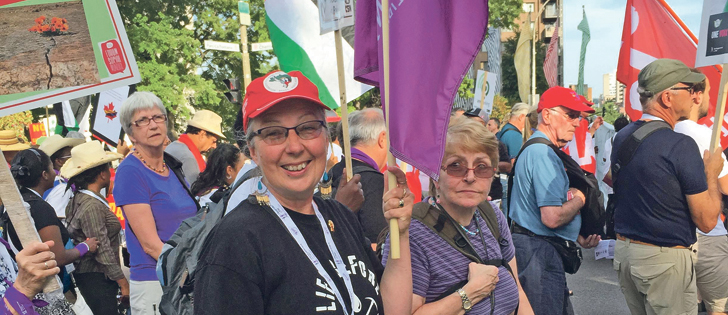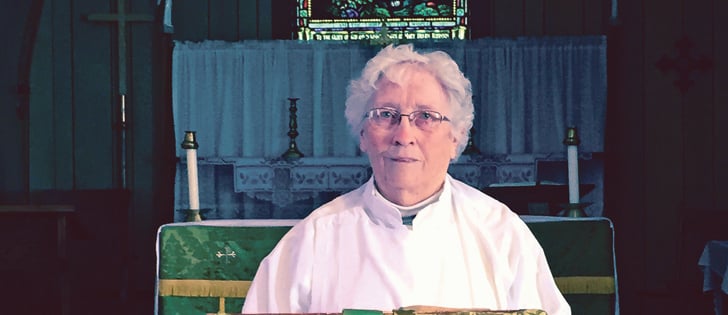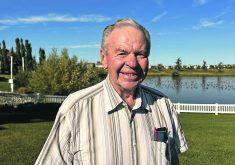When he was 65, Steve, a farmer in northeastern Saskatchewan, surprised his friends and family by retiring.
No one who knew him thought he would ever do that, but Steve said it was time. His health was good and he wanted to be free of the day-to-day responsibilities of running the farm; free to visit his grown children, do more woodworking, maybe drive truck for the renter at harvest time.
He was also available to help his wife, May, around the yard, in the garden and in the house, and he did.
Read Also

Beach or barn? Depends on the retirement plan
Fall is usually when the phone starts to ring and farmers want to talk about succession, transition or sale, says…
He operated the rototiller in the spring and helped with planting, weeding and harvest. He was able to point out improvements that May could make in her gardening techniques.
“Make the rows closer together,” he advised, “for better use of space.”
Other stories in this special feature on post retirement:
Did she know that if she planted each carrot seed individually the seed would go much further and she’d save the bother of thinning the plants later on?
And, didn’t she remember that technique of snipping the pea pods off with scissors, leaving a bit of pod on the plant for a new pod to grow from?
He was happy to spend hours picking wild berries for jams and jellies but not much interested in picking over and washing the berries, boiling them for hours, pressing the pulp through a bag and processing it into dozens of jars of jelly.
He also liked to help out with freezing garden vegetables. He’d noticed that May measured two cups of peas into each pint-sized bag, flattened the bag to press out the air and closed it with a twist tie, producing small flat packages that she could stack in the freezer.
Her husband of 40 years watched the process with interest.
“Now, May,” he pointed out, “Your method does make the bags easier to stack, but if you pack the peas down, really firmly, instead of spreading them out, you could pack more peas in each bag. Have you ever thought of that?”
May had thought of a lot of things since Steve’s retirement. Separation. Divorce. Homicide. But all jokes aside, adjusting to a major life change like retirement is not simply a matter of carrying on business as usual.
Adjustment issues around retirement are not a problem unique to Steve and May. Retirement expert Glen Ruffenach, writing in the Wall Street Journal’s Ask Encore column, says that navigating the transition from work to retirement, including the all-important issue of “togetherness,” can be difficult. He offers practical suggestions:
Plan ahead. Just as you prepare yourself financially for retirement long before the actual time of stopping work, so should you prepare yourself for this aspect of retirement. Discuss questions such as when will we retire?
Ruffenach references a 2015 Fidelity Investments study in which fully half of surveyed couples disagreed on their exact retirement age.
Other questions might include:
What’s our vision of later life?
How do we plan to fill our days?
How much do we wish to travel?
Will one or both of us continue to work in some fashion?
Where will we live?
Do we want to downsize?
Will the housekeeping-garden-yard work now be divided between the two of us?
Rather than addressing these issues, many spouses assume that their partners feel the same way they do.
Ruffenach said couples should also consider the possibility of “parallel play.” As young parents, they may have learned about parallel play and how it applies to children — two little people in the same room, in close proximity, each with their own toys, each doing their own thing, but still together.
It can work for big people too.
“A wife and husband with individual and shared interests typically have a relationship with a good mix of freedom and involvement.”
For more information, Ruffenach recommends Retirement for Two, by Dr. Vandervelde; A Couple’s Guide to Happy Retirement: For Better or for Worse…but Not for Lunch, by Sara Yogev; and Too Much Togetherness: Surviving Retirement as a Couple, by Miriam Goodman.
Steve and May didn’t read any of those books, but they did figure out the concept of parallel play, and they learned to talk about their issues and work out compromises, to the point that in their later years, they both said that the last years of their marriage are the best.















